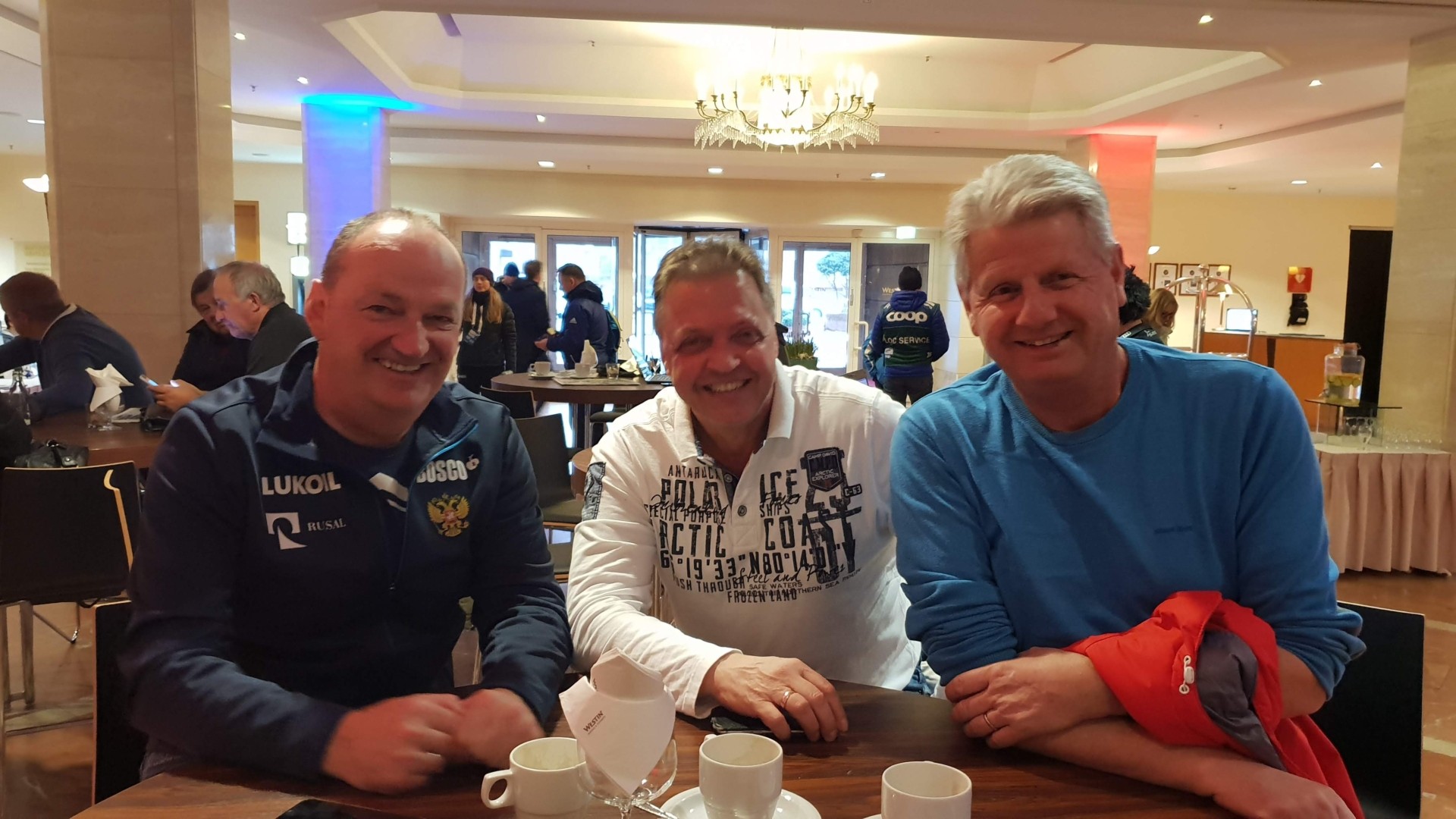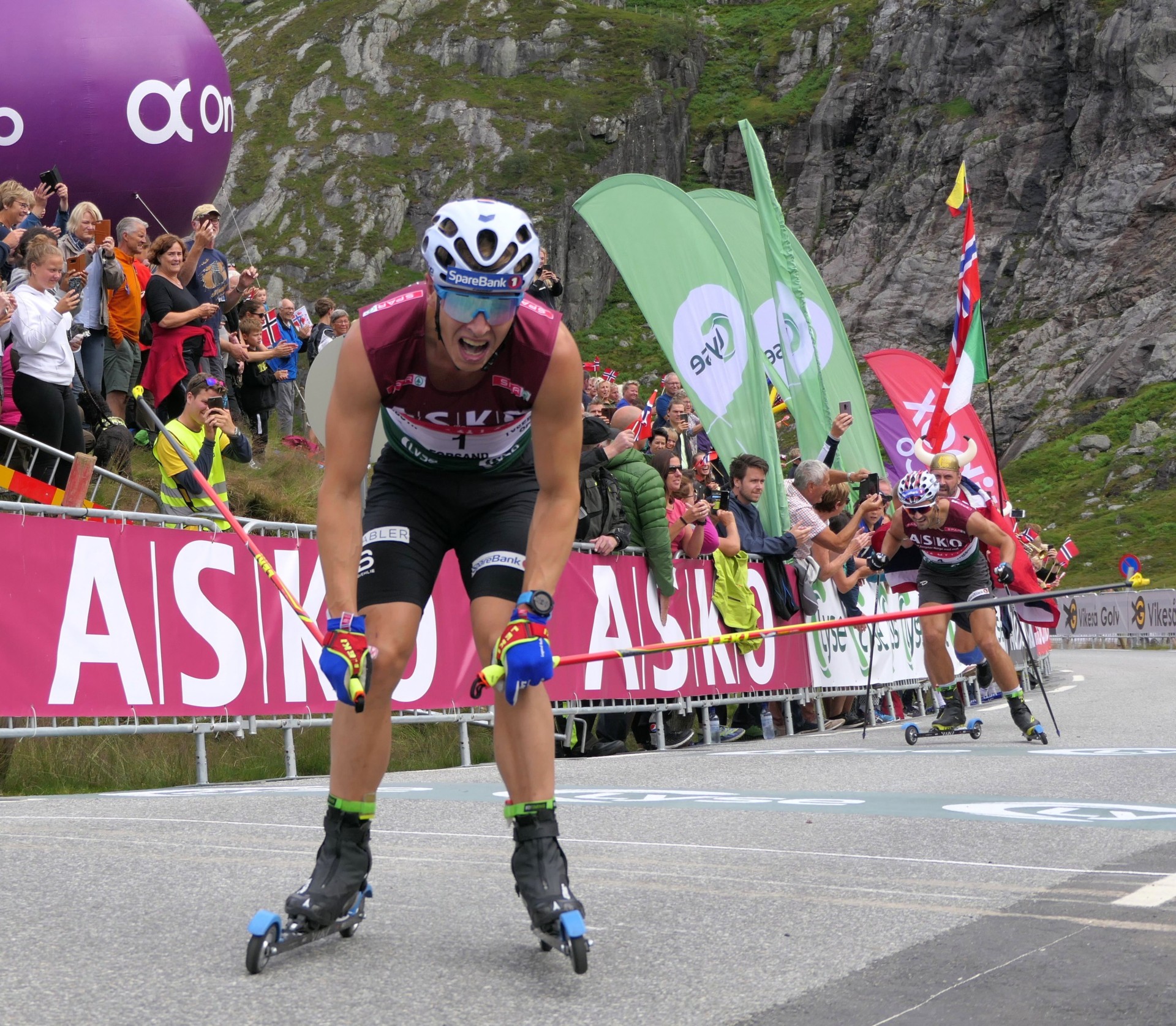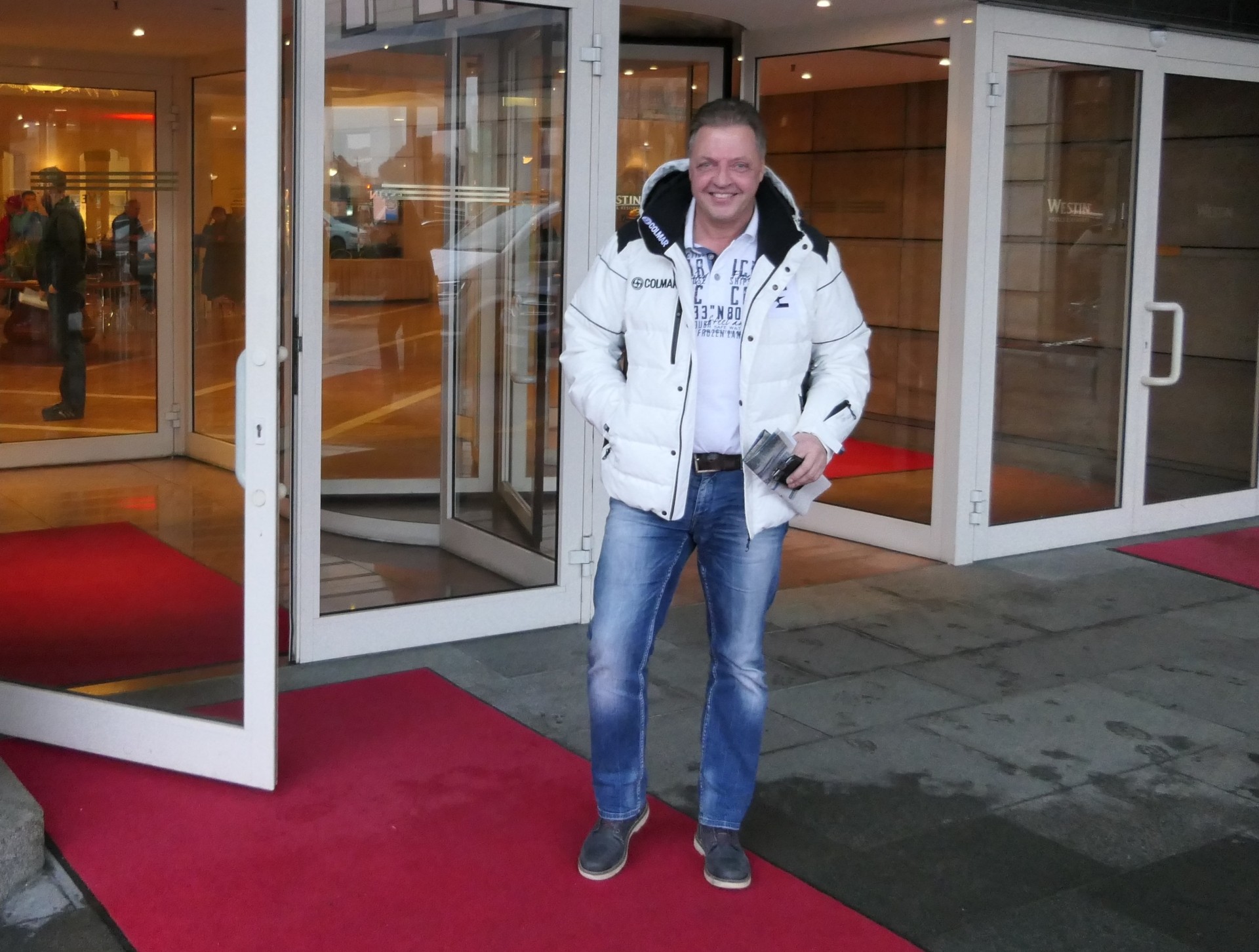
Quick memory refresher:
Jochen Behle, 58
For ten years, from 2002 till 2012, Behle was a senior coach of the German national cross-country skiing team. And his decade at the helm was, without a question, the best German skiing ever saw. Rene Sommerfeldt, Axel Teichmann, Evi Sachenbacher-Stehle, Claudia Nystad, Tobias Angerer to name but a few went and won just about about everything: Olympic and world championship medals, WСup stages and overall World Cup titles. German successes largely ended when Behle quit his job
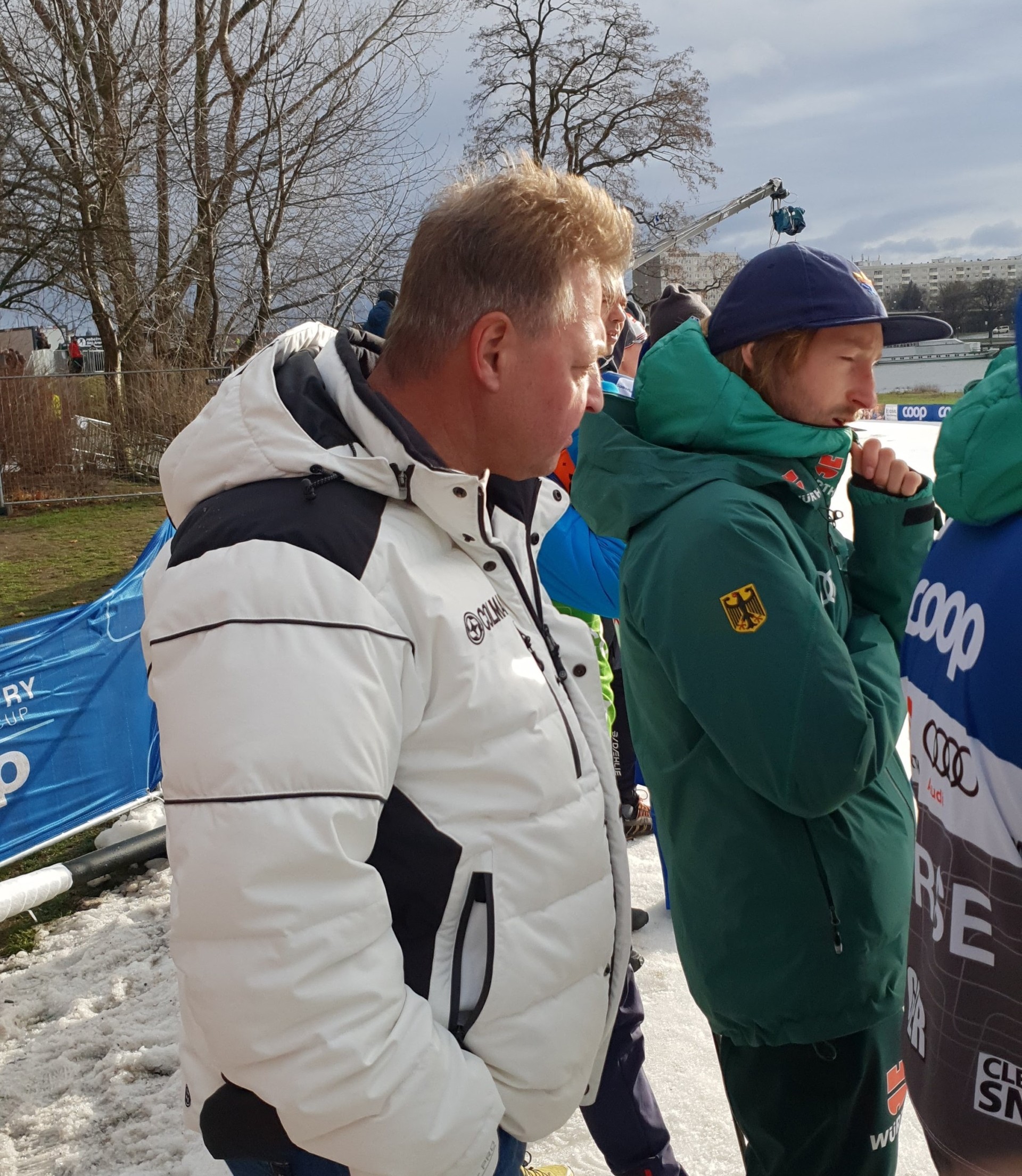
…Talking to Jochen Behle is a sheer pleasure. He’s friendly, fluent English speaker and, most importantly, he does not mince his words. Without caring much who’s feathers he might ruffle with his next phrase.
The conversation flows to and fro, but, naturally, always comes back to the central subject: why German skiing these days is not quite as brilliant as during Mr. Behle reign. And how does it affect financial state of affairs in international Nordic.
We took a liberty of summing up his thoughts and ideas into several categories:
Training
– 10-15 years ago we had more talented skiers here in Germany. It simply happens sometimes.
– Apart from the talent, there are other important issues: for instance, to be competitive internationally, one has to start certain training regimen early. Take core muscles. Look at Natalia Nepryaeva! That’s what modern young skier should look like to start winning. We are clearly lagging behind on that.
– Finally, winning in cross country skiing means pushing absolutely everything else in life aside and giving it all you’ve got. I just don’t quite see that level of commitment in our today’s skiers.
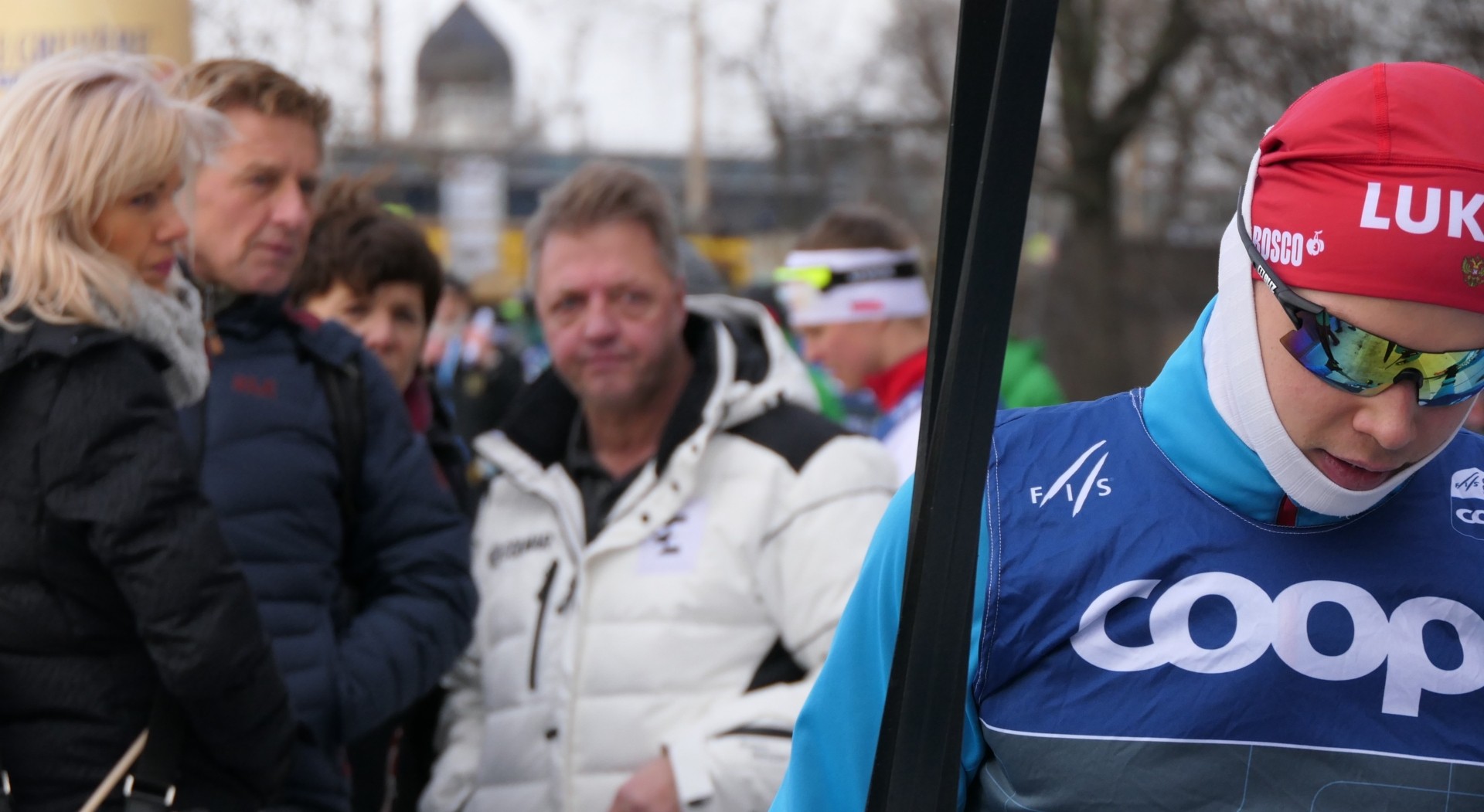
Money:
– Funding given to the German ski teams is about the same as back then – in our time we had neither less nor more. So, it’s not an issue of the lack of money for the team.
– Money flow has changed in other places though– German companies are not interested in being competition sponsors. That affects world’s cross country skiing a lot
– Today’s successful German bi-athlete would earn, perhaps, ten times more than a skier. That’s a fact of life.
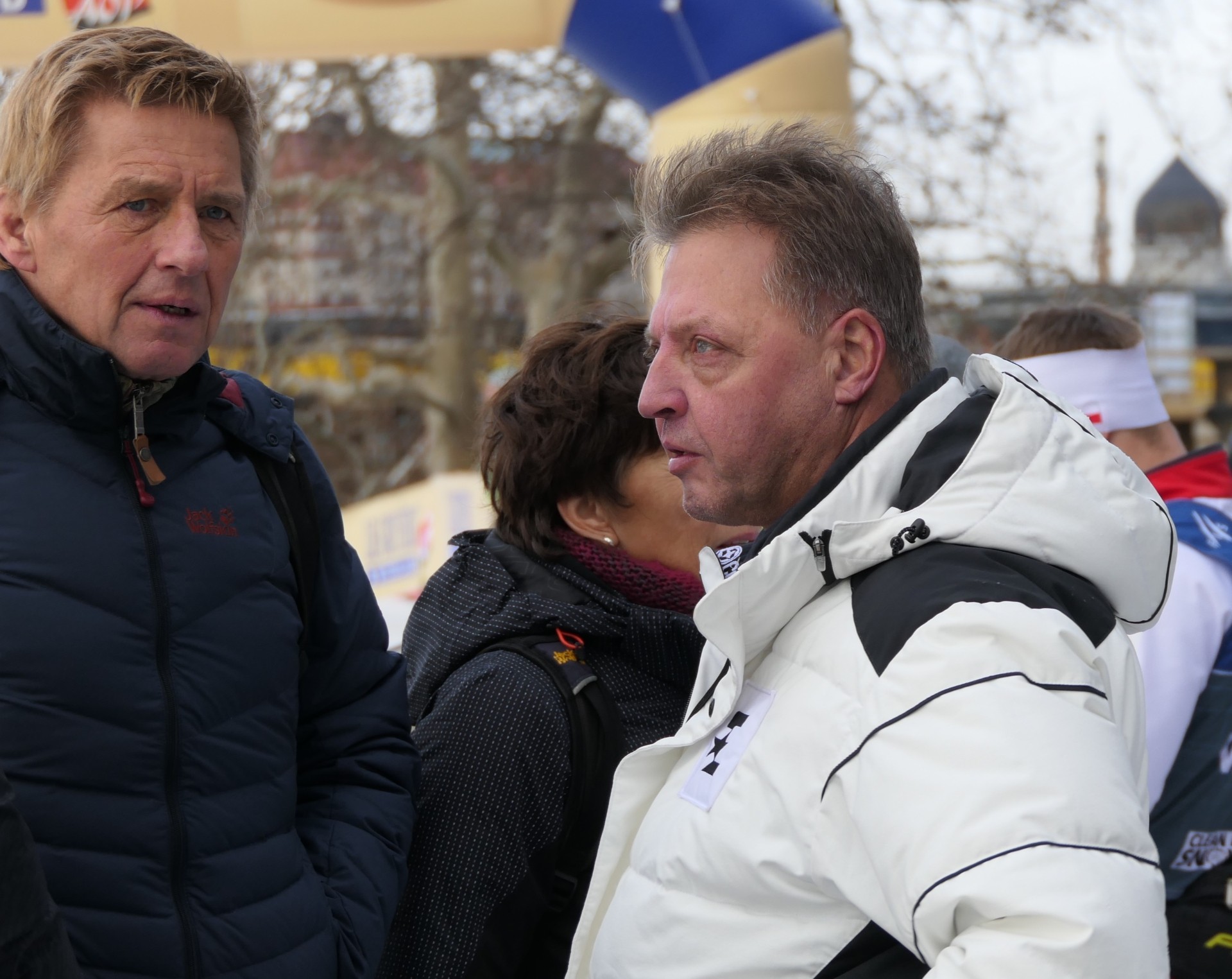
Television & rest of the media:
– Our last victories in cross country skiing happened over five years ago. When we stopped winning – television bosses stopped showing xcsking competitions live on national channels in Germany. At best you get a short summary somewhere after more popular winter events are over. And more popular are those where Germans are winning – and those are many.
– One of the solutions could be introduction of pay-per-view access as common in other sports.
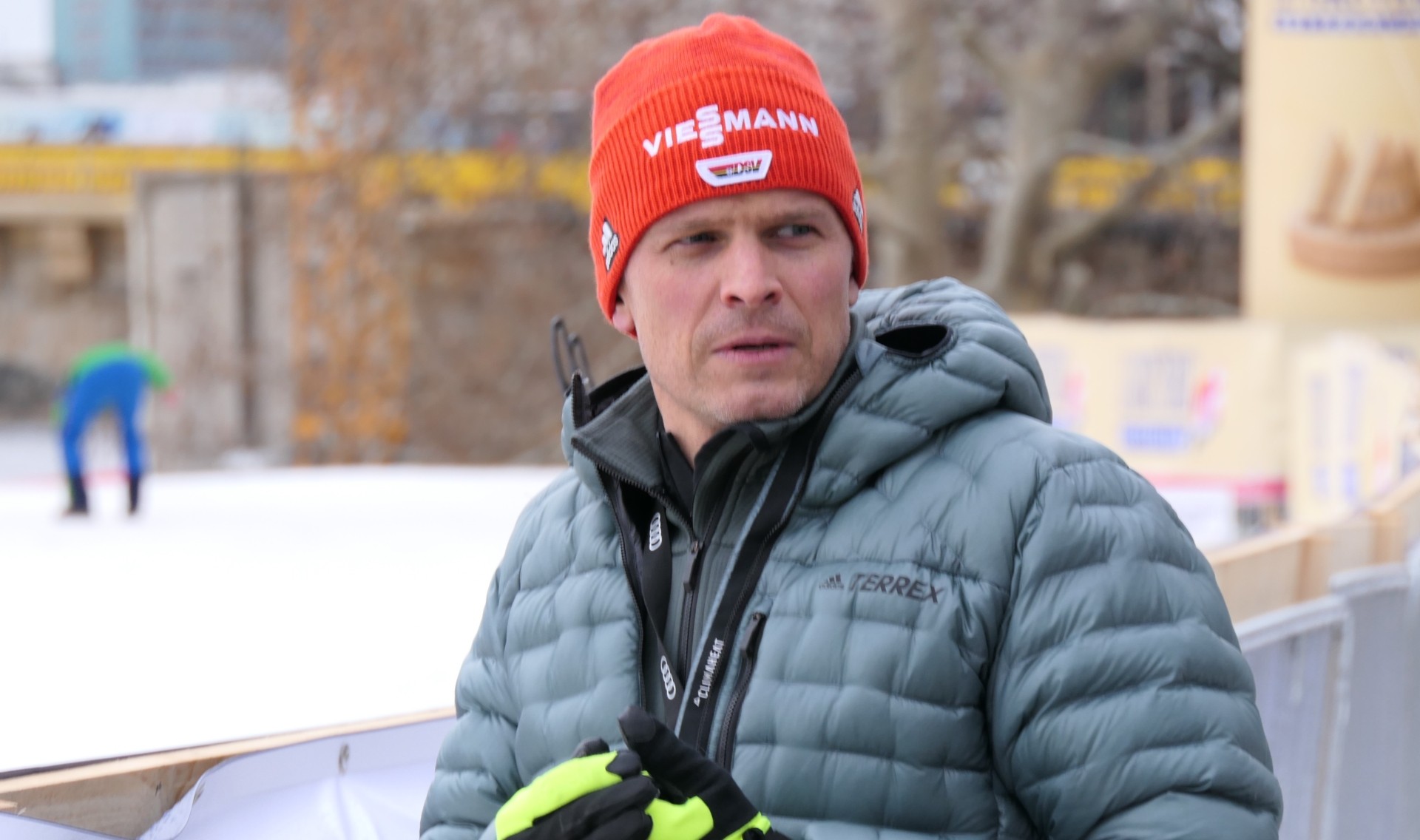
Solutions:
– You have to bring skiing to the city, to the audience – the way Dresden is doing. That should help re-gain lost popularity.
– Today many in cross country skiing – events organizers, equipment manufacturers, media – say “China will save our sport” I don’t think so. I was approached by the Chinese – but had to turn down the offer.
– Competition formats are not meant to be rigid, the same everywhere: remember point-to-point races, 4 kilometers “long sprints” etc? You have to come up with new formats to give it some sparkle. For instance, why do all sprints have to be around 1.5 kilometers? How about running half that? –
– Supersprints of 100 meters? Great idea!
– FIS should think of staging competitions in Dusseldorf where they were once held – not in remote Ruka. FIS Calendar should consists of stages such as Lillehammer, Toblach, Dresden, Stockholm, Lahti where audiences are guaranteed.
